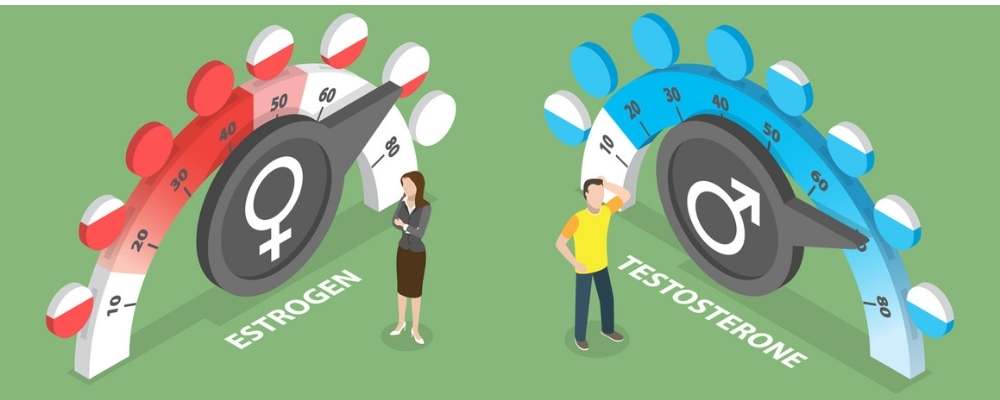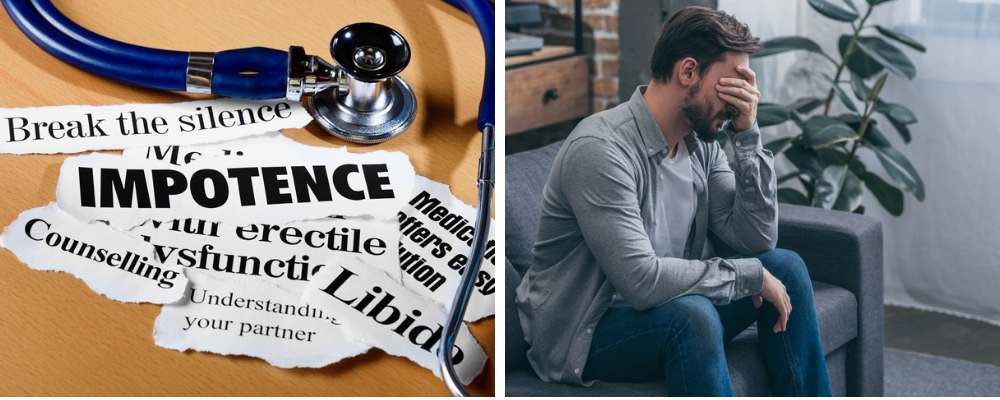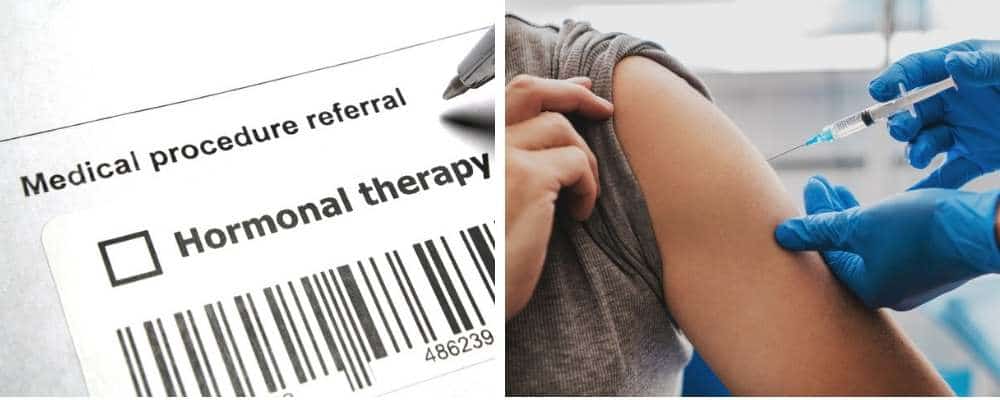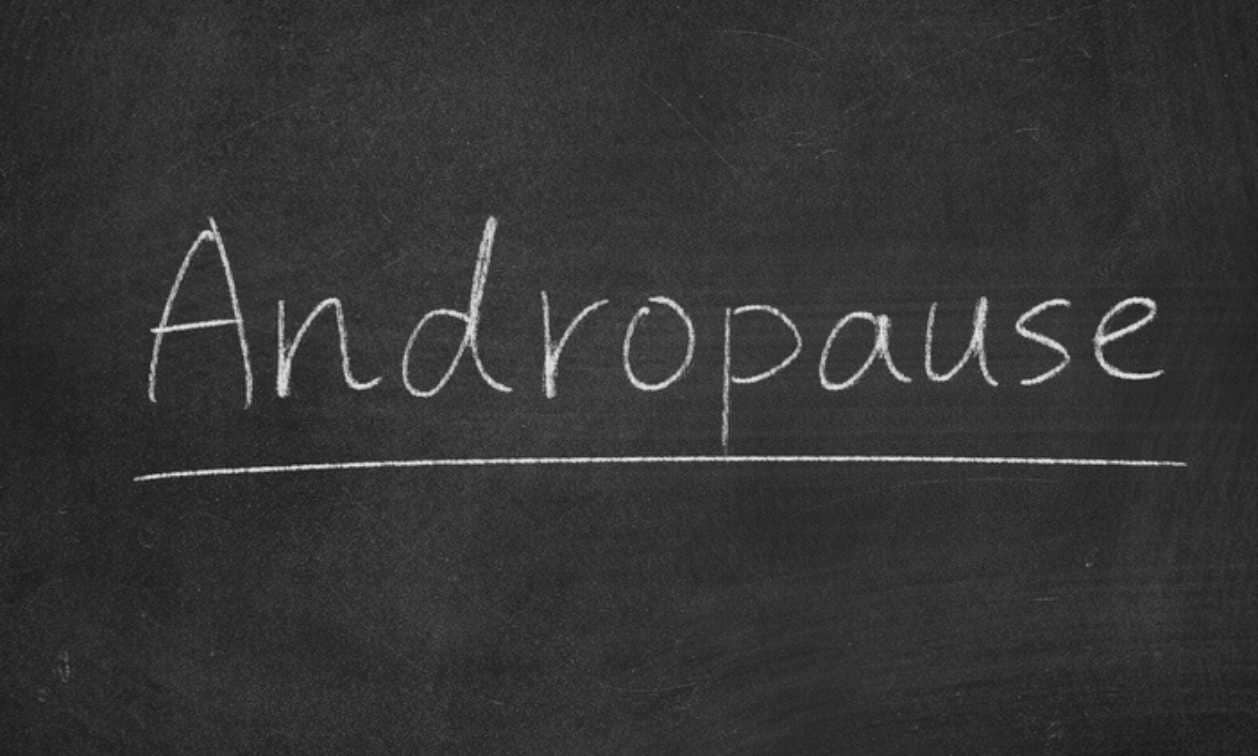
Male Menopause: Symptoms, Definition, How to Overcome
Table of Contents
- What Is Andropause?
- Are Low Estrogen Levels a Cause of Male Menopause?
- How Does Male Menopause Impact Erectile Dysfunction and Sexual Health
- Is Male Menopause the Cause of “Mid-Life Crisis”?
- How is Andropause Diagnosed?
- How is Andropause Treated?
- FAQ About Andropause and Male Menopause
- Can HGH Help With Andropause?
Did you know that men go through a similar condition to menopause known as andropause or “male menopause?”
When you hear the term “hormone replacement therapy” (HRT), most people think of women and how HRT is traditionally used as a treatment for the symptoms of menopause. However, men also lose critical hormones as they age, and men too can benefit from hormone replacement therapies. In fact, men go through a very similar condition as menopause, known as “andropause.”
What Is Andropause?
The primary cause of male menopause is age-related testosterone loss. Unlike menopause in women, which occurs at a specific point in time, after her last menstrual period, andropause in men occurs more slowly over time. Menopause in women is caused mainly by the depletion of estrogen. Andropause is caused by the slow decrease in testosterone that occurs as a man ages.
Decreasing levels of human growth hormone also contribute to andropause; however, its driving force is age-related testosterone decline. Testosterone is the most important androgen or male hormone. Testosterone levels peak in men at around the age of 20. After that, the testosterone level in the blood slowly drops. By the time a man is in his 60s, his testosterone level could be HALF of what it was in his 20s!
Are Low Estrogen Levels a Cause of Male Menopause?
Unlike estrogen loss in women, the primary driver of male menopause is age-related testosterone loss. However, as men age, some of their testosterone is converted into estrogen.
Everyone is familiar with the loss of estrogen women go through, which results in the many symptoms of menopause. Men also go through age-related hormone loss that results in a similar condition known as andropause. Most of the symptoms of andropause are related to low testosterone. However, recent studies have found that in aging males who suffer low testosterone, some of their remaining testosterone converts to estrogen. The research suggests that it could be this conversion of testosterone to estrogen that might be responsible for some of the symptoms of low testosterone in men – particularly those related to sexual wellness.
What Are the Signs of Male Menopause?
Most men between the ages of 35 and 65 will feel the symptoms of andropause. The signs of andropause, also known as “male menopause,” include:
- Lack of libido and erectile dysfunction
- Fatigue/lack of energy
- Weight gain, particularly belly fat
- Loss of ability to build muscle, even when working out
- Depression, anxiety
- Mood swings, memory loss, and other cognitive difficulties
However, most if not all of the symptoms of andropause can be treated with hormone replacement therapy for men.
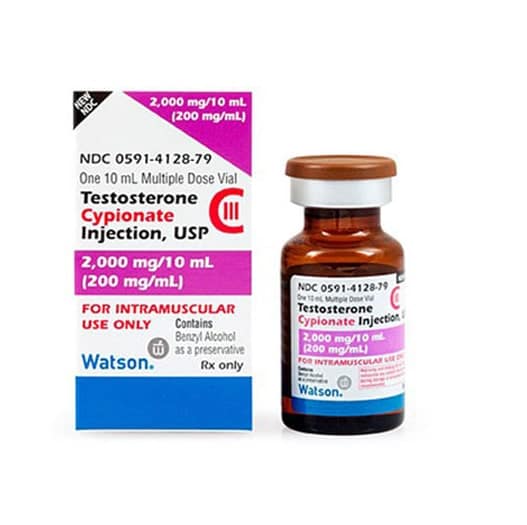
How Does Male Menopause Impact Erectile Dysfunction and Sexual Health
One of the main symptoms of andropause are sexual health issues such as erectile dysfunction and loss of libido. Both testosterone and HGH contribute to sexual wellness in men, so it should come as no surprise that the loss of both of these critical hormones as men age contributes to erectile dysfunction and other sexual health issues.
Erectile Dysfunction, commonly known as “ED,” is defined as “the persistent inability to achieve or maintain an erection that is satisfactory for sexual intercourse.” But there are varying “degrees” of ED. You may be considered to have a form of ED if:
- You can’t get an erection that is hard enough for satisfactory intercourse
- You lose your erection before you can complete the sexual act.
- You cannot achieve an erection at all. This is known as “complete ED,” or the condition doctors used to call “impotence.”
Medical research has shown that men suffering from andropause experience a decreased sex drive or lack of libido. A decreased libido may not be a direct cause of ED, but the loss of interest in sex can certainly influence your ability to get or keep an erection. We know that low testosterone leads to erectile dysfunction, decreased sex drive, and other sexual health issues in men. It is a biological fact that as men age and testosterone drops, so does their ability to perform sexually. We also know that testosterone is essential for normal erectile function. The relationship between low testosterone and erectile function is a complex one.
One thing is certain; however, men with low testosterone also are quite likely to, and usually do, also suffer from ED. But that does not mean that their ED is caused by their low testosterone. Low testosterone leading to andropause impacts a man’s health in several ways that can lead to ED. For example, men with andropause also tend to be overweight, have hardening of the arteries, and diabetes, all of which are known to contribute to ED. In addition, men suffering from male menopause are also often weak, tired, stressed, and/or depressed — all of which can lead to erectile dysfunction and/or a lack of desire for sex.
Low levels of human growth hormone or HGH also impact sexual wellness in men suffering from andropause.
It is not entirely understood how HGH can improve erectile function. One theory suggests that raising HGH levels increases nitrous oxide production. Nitrous oxide is instrumental in getting and obtaining an erection. Studies have also found that growth hormone therapy can increase testosterone. Low testosterone is a known contributing factor to ED.
Is Male Menopause the Cause of “Mid-Life Crisis”?
The term “mid-life crisis” is applied to the physical and emotional changes that are experienced by middle-aged men that cause changes in their behavior, physical and emotional wellbeing. The many things thought of as a man going through a “mid-life crisis” are indeed all related to the hormonal changes that occur in a man going through andropause.
Take a look at this list typical of the signs of a “mid-life crisis,” they line up pretty well with all of the signs and symptoms of “male menopause.” The typical signs of andropause can include:
- Diminished sex drive and erectile dysfunction
- Low energy and fatigue
- Loss of muscle mass and increased body fat
- Loss of facial and/or body hair
- Memory loss and other cognitive difficulties
- Mood swings such as increased anger, depression, and irritability
- An overall sense of feeling poorly
Is Male Menopause the Same Thing as Hypogonadism or Low Testosterone?
You may often see andropause or male menopause, also referred to as “hypogonadism” or simply “low testosterone.” While the terms are often used interchangeably, they are not exactly the same thing. Men with andropause will 100% of the time have low testosterone. Low testosterone is the driving factor behind a diagnosis of andropause. However, “andropause” is a confluence of symptoms that are caused not only by low testosterone but imbalances of other hormones as well, such as HGH, meaning that “andropause” or “male menopause” is more of a “syndrome” and not one single condition such as “low testosterone” or “hypogonadism.”
How is Andropause Diagnosed?
Andropause is primarily caused by low testosterone. Low testosterone is determined by a simple blood test. The normal range is 300 ng/dL to 1,000 ng/dL. However, what is normal for one man, can be low for another. This is why testosterone replacement therapy is prescribed on a very individualized basis. Testosterone levels do fluctuate throughout the day — they are highest in the morning, so your doctor will probably want to do the blood test in the morning.
If your level of testosterone is determined to be low for your weight and age, and if an evaluation of your presenting symptoms warrants it, you will be prescribed testosterone therapy.
If you are experiencing the symptoms of male menopause and have been diagnosed with low testosterone, chances are your HGH levels are also low, and your doctor will likely order a growth hormone level test as well.
How is Andropause Treated?
Hormone replacement therapy is the safest and most effective treatment for andropause. Testosterone replacement therapy is the main treatment given for men suffering from andropause, but depending on your symptoms and lab tests, your doctor may also recommend growth hormone therapy.
There are several forms of testosterone treatments. Low testosterone treatment can be given as topical gels and creams, subdermal pellets, skin patches, or testosterone injections. Our doctors have found testosterone injections to be the safest and most effective type of low testosterone treatment. Testosterone injections are prescribed as different “esters.” Each “ester” is simply a different chemical form of testosterone. They differ only in their molecular structure. The most commonly prescribed esters used for the treatment of low testosterone are testosterone enanthate and testosterone cypionate.
The before and after results of testosterone replacement therapy for the treatment of andropause have been well documented and can be life-changing for men diagnosed with low testosterone.
As with any therapy or medication, your individual results of testosterone therapy will vary. However, when prescribed for low testosterone and taken as long as you follow your doctor’s instructions, most patients achieve remarkable results on testosterone therapy.
They have been enumerable studies both in the US and abroad that have clinically proven the many positive benefits of testosterone therapy as an andropause treatment for men.
In treating andropause, the goal of testosterone replacement therapy is to prescribe you with the minimal dosage of testosterone that will be sufficient to restore the testosterone level in your blood to normal levels. Dosages of testosterone replacement therapy are titrated, which means that your doctor will start your testosterone replacement at the lowest effective dose. Once treatment is underway, your doctor will closely monitor your symptoms and your testosterone levels and may need to adjust your dose accordingly.
FAQ About Andropause and Male Menopause
What age is men's menopause?
Unlike menopause, which occurs at a specific point in time in women – after their last regular menstrual cycle – andropause, or male menopause occurs more gradually over time. Testosterone is the most important male hormone. Age-related testosterone decline is the major contributing factor to male menopause. But unlike women who experience menopause at a specific age when estrogen drops suddenly and dramatically after their child-bearing years, testosterone levels drop more slowly, starting a steady dip after the age of 20. Once a man is over 30, he can expect his testosterone levels to drop by about 1% to 2% per year. That means that most men start experiencing the symptoms of andropause any time between the ages of 35 and 65.
Why do testosterone levels decrease with age?
Testosterone is produced by specialized cells in the testes known as Leydig cells. Leydig cells respond to the presence of another hormone, luteinizing hormone (LH), which tells the cells to produce and release testosterone. Studies have shown that, for some reason, as men age, the Leydig cells become less sensitive to the presence of LH. Also, the older men are, the fewer Leydig cells are replaced as they die off. This leads to an overall reduction in the production of testosterone.
But that is not all; as a man ages, several other changes occur that can lead to low testosterone, such as health issues that come with aging like diabetes, obesity, and high blood pressure, all of which can lower testosterone.
How do men usually overcome male menopause?
If you have been diagnosed with andropause, the only real medical treatment is hormone replacement therapy. Men diagnosed with andropause will most assuredly be suffering from low testosterone and will require testosterone replacement to overcome its symptoms. Many men with andropause will also find that a number of their symptoms are also being caused by growth hormone deficiency. Therefore, HGH injections may also be prescribed to overcome male menopause. HGH injections and testosterone injections are often given together, and the combined therapies have been found to have a “synergistic effect.” In other words, one enhances or improves the benefits of the other.
What can you do to overcome andropause?
While the only clinical treatment for andropause is hormone replacement therapy, there are some lifestyle changes you can make that can help boost or maintain your levels of testosterone and HGH and help to stave off the symptoms of andropause.
- Exercise – Exercise is one of the most effective ways to boost your testosterone. Strength training, such as weightlifting or High-Intensity Interval Training, are the best exercises to boost testosterone. Such exercises also boost your level of growth hormone.
- Sleep – Critical hormones such as testosterone and growth hormone are mostly produced during periods of deep sleep. Not getting enough sleep negatively impacts hormone production. Making sleep a priority is vital to maintaining testosterone levels. Men should aim to sleep at least 7 to 8 hours each night.
- Reduce stress – Stress is a testosterone killer. High stress raises your levels of the hormone cortisol. Elevations in cortisol can quickly reduce testosterone.
- Vitamin D – Vitamin D is a precursor to testosterone production. It is crucial that men spend enough time in the sun (the main source of vitamin D) or take vitamin D supplements.
- Avoid alcohol – Abuse of alcohol lowers your testosterone.
- Nutritional supplements – Certain herbs and nutritional supplements have been shown to increase testosterone production. This includes ginseng, ginger, ashwagandha root, DHEA, and Yohimbe.
- Enjoy a healthy sex life – Men will be happy to know that having sex regularly can increase testosterone production.
Can HGH Help With Andropause?
Yes absolutely. Andropause is a confluence of physical, emotional, and cognitive issues that are related to the loss of not only testosterone but the imbalance of other hormones as well, chief among them human growth hormone or HGH.
HGH replacement therapy has been clinically proven to have many antiaging effects that can help men overcome the symptoms of andropause. The first breakthrough study to illustrate the antiaging effects of HGH was published in 1990 by Dr. Daniel Rudman at the Medical College of Wisconsin in Milwaukee. Dr. Rudman’s results were published in the prestigious New England Journal of Medicine.
Dr. Rudman’s research clearly showed the many antiaging benefits of HGH. The men in the study who had been given HGH (as opposed to placebo) showed increased muscle tone, loss of fat, younger-looking skin, and reported a feeling of “greater overall wellbeing.”
